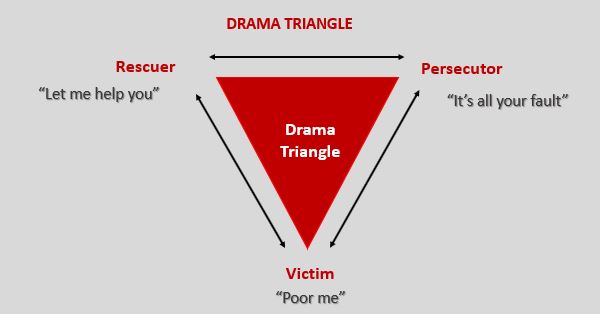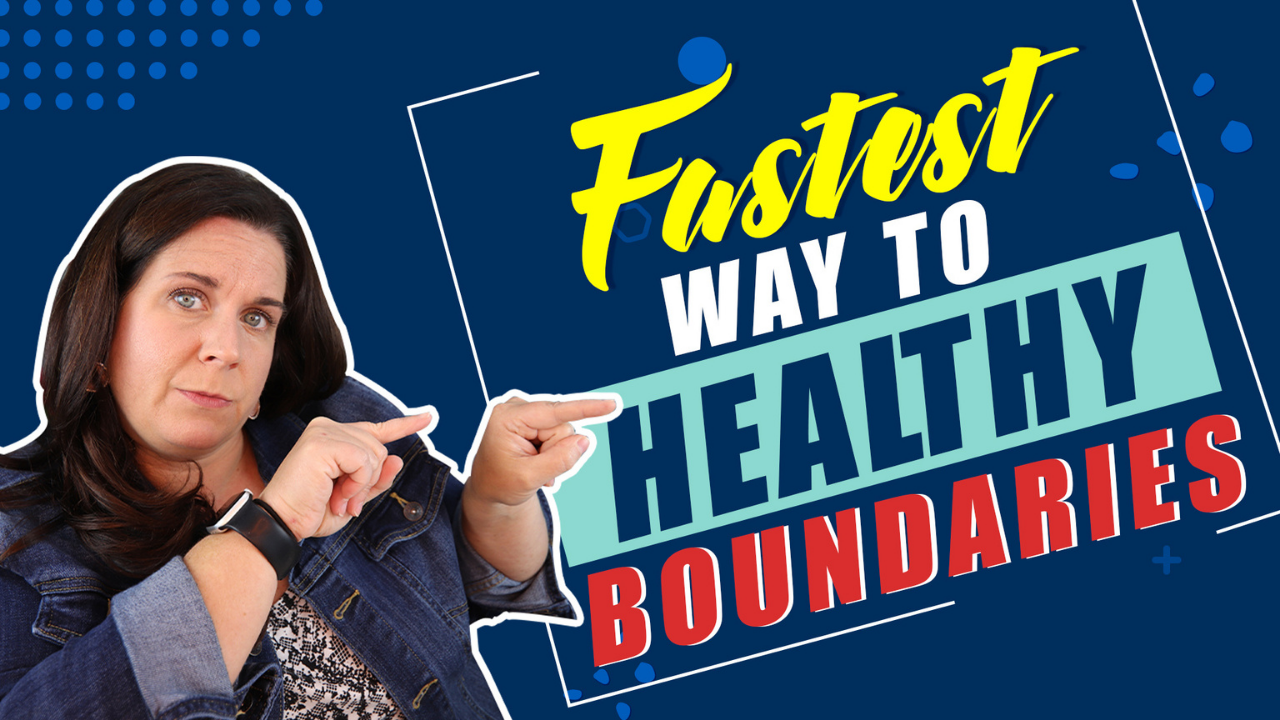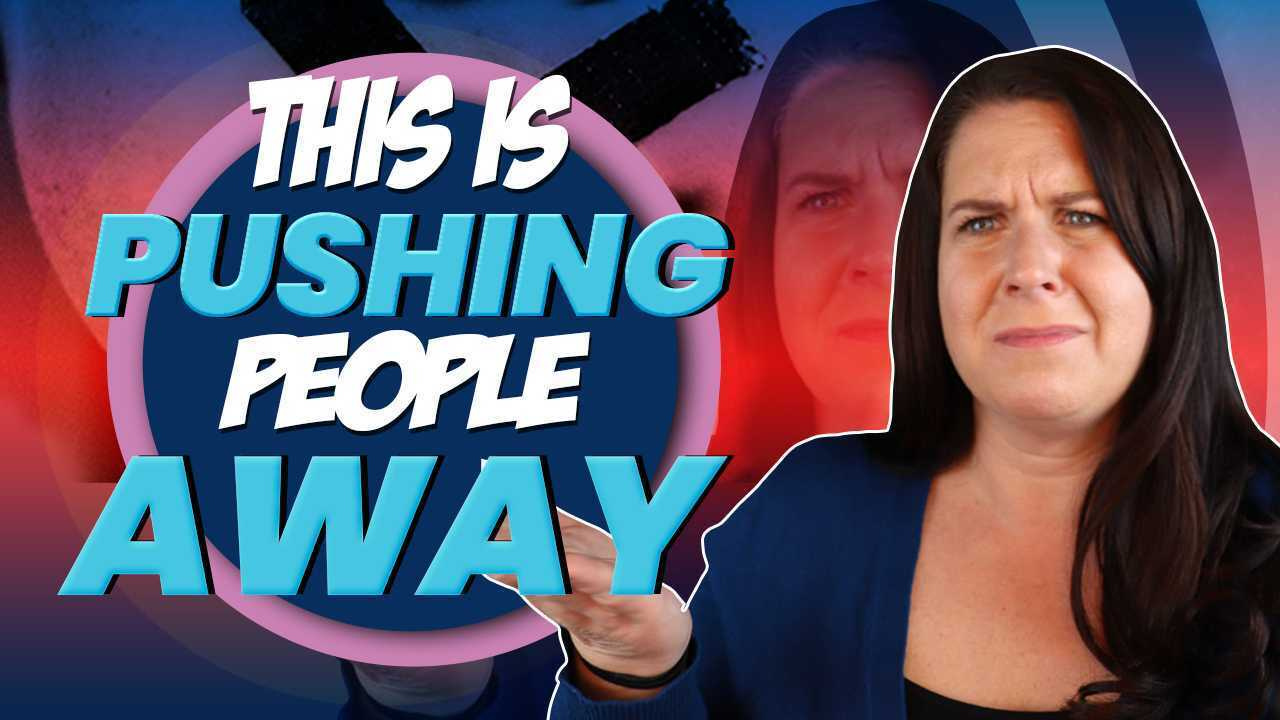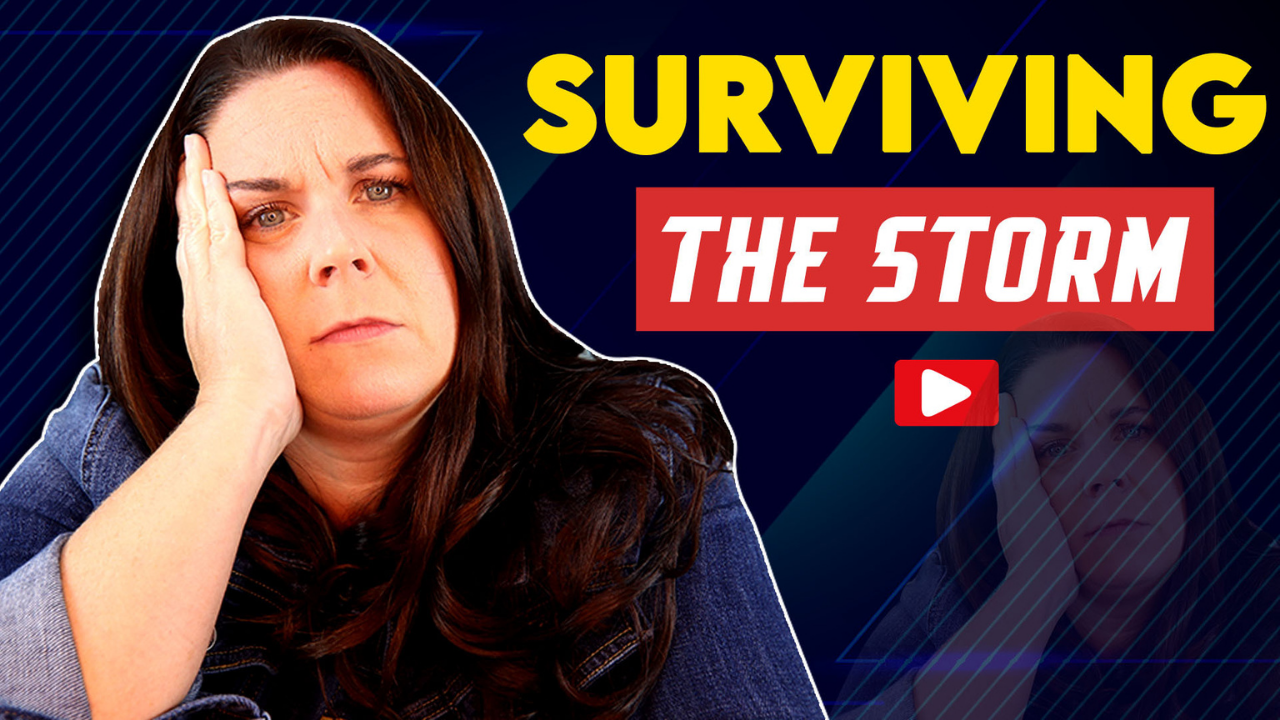Healthy vs. Unhealthy Boundaries
What is the quickest way to go from unhealthy boundaries to healthy boundaries? Let's identify a few situations where you could slide into unhealthy boundaries and learn how to turn the situation around.
Whatever side of the issue you're on, everything I will teach you today is helpful, whether or not addiction is in your life. A quick way to figure out if you're sliding into unhealthy boundaries with someone is to determine whether or not you're on the drama triangle. These are healthy skills that we can all benefit from.
In the 1960s, Stephen Cartman came up with this theory called the drama triangle as a way of explaining dysfunctional social interaction. I love to explain this to people because it's so easy to understand and has such a concrete visual, which helps.

There are three roles in the drama triangle--The rescuer, the victim, and the persecutor.
If you find you're demonstrating these characteristics, this is a surefire signal that you are sliding into the unhealthy zone. It probably isn't going to end well unless you catch it.
VICTIM
When we're in the victim role, we see ourselves as victimized, helpless, and hopeless. Not our fault. I can't help it. We're stuck in this situation. We're a victim of circumstance. I'm not saying we haven't been the victim of bad things, but what I'm talking about here is a victim role as a mindset or a way of approaching life in general. We keep ourselves from taking or accepting responsibility for something going on in our life.
We all fall into this thinking from time to time. Let's say you're in a bad relationship or have a job you don't like. When we're in this state of victim thinking, we feel hopeless and helpless, so we seek out rescuers.
RESCUER
When we're in our rescuer zone, we tend to want to help others because it makes us feel good. When we're helping people that are victim-thinking, we end up doing things that are helpful short-term, but we end up crippling people long-term. We're doing the things that they should be doing for themselves. Guess what if you're helping someone in a victim mindset? It's not a temporary problem. It's a mindset issue.
What ends up happening when you're in the rescuer role is you pour into the person, and you help but eventually become frustrated because the person won't help themself. You will find yourself with a lot of resentment because you're doing more than the other person.
PERSECUTOR
When you're feeling resentful, you can jump over into the persecutor role. Now, persecutor-type thinking is the thinking that it's all your fault.
You usually set strict boundaries when you're coming from a persecutor's point of view. You're angry. Sometimes you could be acting like a bully. You're judgmental, you're critical, you're upset, and you're running over other people. And guess what? Most of the time, when people do that, they feel justified. They think they are entitled to do that because they were wronged in some way.
Do you see this victim's thinking at the center of the triangle? That's why it's at that bottom point because that victim thinking can lead you to act out and be ugly. Then you feel bad about it, regret it, and want to make up for it, causing you to move back into the rescuer role.
Do you see how this can keep you stuck on a revolving circle of the drama triangle?
What is the quickest way to get off the drama triangle? Well, luckily, there is a solution. It is called the empowerment triangle. There is a healthy version for each of those three roles.
You can download my worksheet on communicating positive regard to other people HERE.
Healthy, genuine statements that you can make that are healthy boundaries. Not coming from a rescuer or victim place, but from a healthy mindset to get relationships to start moving back on track.
Let's get into what those are in the empowerment triangle. The persecutor becomes the challenger. When you're the challenger, you're firm but fair. You're assertive, not critical, not domineering. You're not bullying. You're not running over anyone, but you are holding a line and holding people to expectations. That's the healthy version of the persecutor.
The healthy version of the rescuer is a coach because coaches are caring and empathetic and want to help you, but they come at it from a boundary place. Like, "let me help you help yourself kind of place." You're less likely to lead to those resentments and bad feelings of victimhood.
In the empowerment triangle, the victim becomes the creator. They become the hero of their own story.
They pull themselves out of the situation, and in doing so, they gain a lot of self-respect and confidence. Easier to have happy, healthy relationships with other people.
As I said before, we all tend to fall into these unhealthy roles from time to time.
Most of us have a primary role where we tend to get into the drama triangle. Maybe we jump on it at the rescuer's point, or we jump on it at the persecutor's point or the victim's. Once on the drama triangle, you tend to circle all roles.
Amber Hollingsworth
Take Amber's Free Boundaries Quiz 👉🏻https://www.familyrecoveryacademy.online/boundaries-quiz
If you want to learn more about boundaries, I want you to watch these videos next:
"Huge Communication Mistakes that are Ruining Your Relationships!"
"Have You Lost Yourself In Your Loved One's Addiction?"
Get Access to our Positive Communication worksheet (FREE Download)



